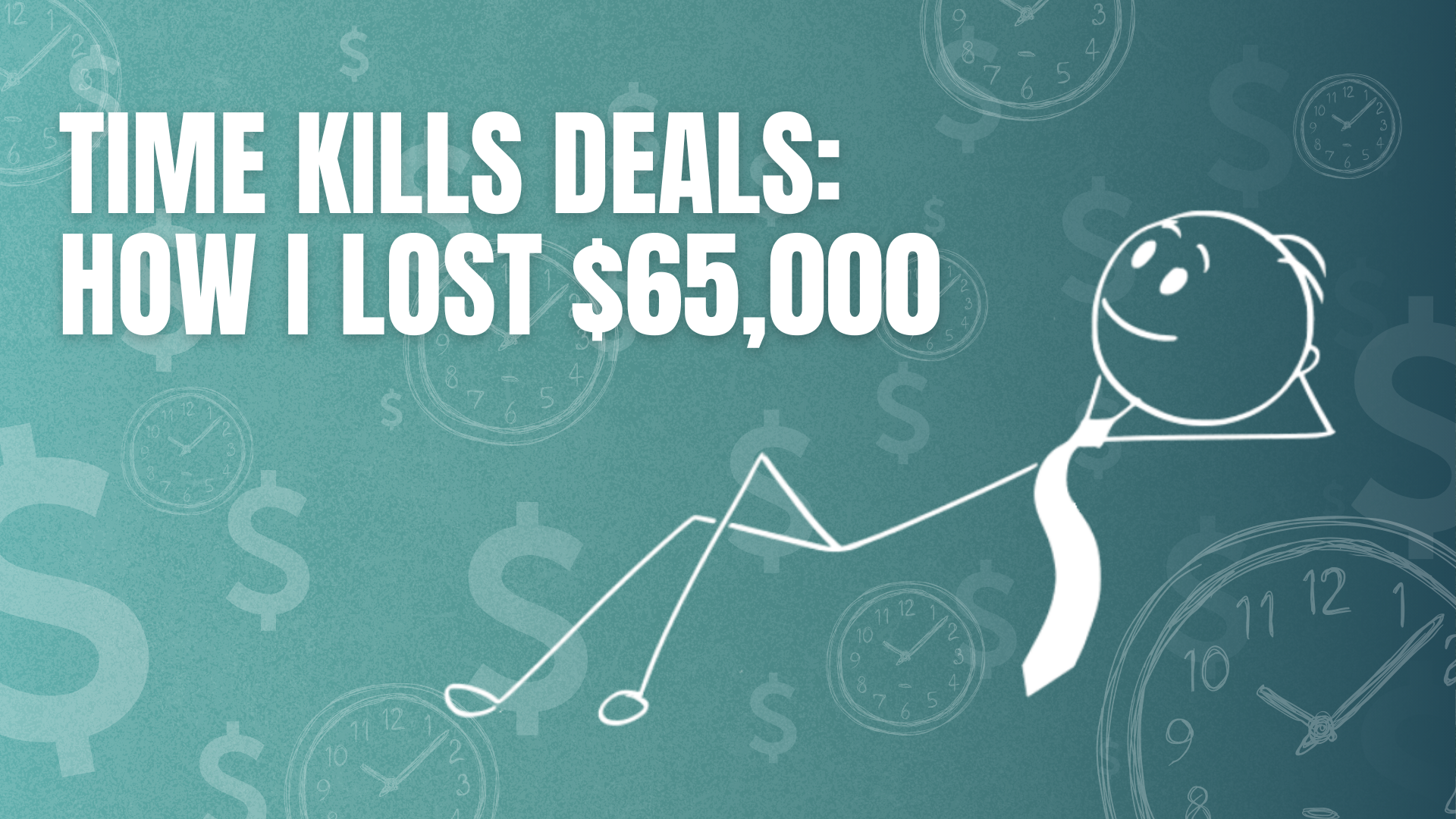
Time Kills Deals: How I Lost $65,000
When I started my very first company, I was still completing my undergrad at Purdue University. I was going to school full-time and trying to get a mobile app development company off the ground. At this time, the iPhone had just come out a couple of years earlier, and the Apple App Store had just been released. This enabled developers to build their own apps for the iPhone for the very first time.
I was positioned perfectly to be an early app developer. I had been building mobile apps before the iPhone was released, and I was even a co-author on Mobile 3D Game Development: From Start to Market, the leading book on 3D game development for mobile phones at the time (again, this was pre-iPhone).
As the only app developer in town at the time, I was contacted by a local real estate developer in West Lafayette, Indiana. He was asking if there was interest in building an app for this new apartment complex that was being built. We had a great initial conversation, and I think we both left the conversation feeling great about the opportunity.
After the call, I sat down to start a proposal. As I considered it carefully, I reached out to friends, colleagues, and mentors to figure out what I should charge. I asked professors and read articles. I went to class, did my homework, and finished a project that had to be done for one of my classes.
Two and a half weeks later, I sent my proposal over to the person who contacted me. Within an hour, he called me directly. During our conversation, he told me two things:
-
I was way too cheap. He was expecting a proposal to be much higher and that I was likely underselling my services. I had pitched a $22,000 mobile app, and he told me his budget was $65,000.
-
When he didn’t hear back from me, he assumed I wasn’t serious about the project and had just signed a contract with a developer shop out west to build his app. He expressed disappointment as he would have “loved to work with me.” I apologized and said I clearly thought too much about this, waited too long to respond, and should have reached out.
He offered some advice from his career in sales: “Remember, time kills deals!”
I’ve never forgotten this advice, and it makes perfect sense. Without a simple follow-up, potential customers begin to complete the story without your input: “You must be too busy,” “you must not be serious,” “I must not be important enough to work with,” etc. You always want to control the narrative of your sales. You can only do this by following up—and following up quickly.
Because of this, it is now rare that I don’t follow up within 24–48 hours. However, someone out there may be reading this and wondering how they fell through the cracks! The reality for me is that I can easily get distracted. This can come from the millions of other things I need to get done, but most of all, a serious weakness of mine is that I get the dopamine hit from the achievement, not the action.
Simply getting a potential customer to say they are interested, to say they will speak at the Startup Mountain Summit, or even feeling like I made a difference for a Startup Founder that I’m coaching—this brief moment of feeling like I achieved something is enough for me to feel accomplished. I value the challenge to make an impact more than I do getting a contract signed, sending an invoice, or seeing the final outcome happen.
This is a serious weakness because the true success will never materialize without a follow-up and the actions afterward. So, how do I ensure this happens? If you read my last post, then you know the answer. I built a team, and I empower them to take action.
Key people on the FoundersForge team have access to my email and the right to respond to people who reach out. After meetings, I rarely do the follow-up unless it requires my action. When it does, my team holds me accountable and keeps me on the important tasks that need to get done.
Hearing “time kills deals” would never be enough for me to be successful in my career. I have to build a system around me that ensures we deliver as much as possible. Of course, things fall through the cracks and mistakes happen. But now, we share this burden together, and we achieve greater success together.
I hope that new founders who read this learn two things:
First, you have to follow up with potential customers, partners, and connections. This is a primary key to business success. Even a quick note that you look forward to getting back with them, or that you are still working on a proposal, can help you avoid losing a deal (i.e., $65k!).
Secondly, I hope this illustrates that you need to take a deep look at yourself to self-identify what your strengths and, most importantly, your weaknesses are. Only by truly understanding these can you build the systems and support you need to be successful.

